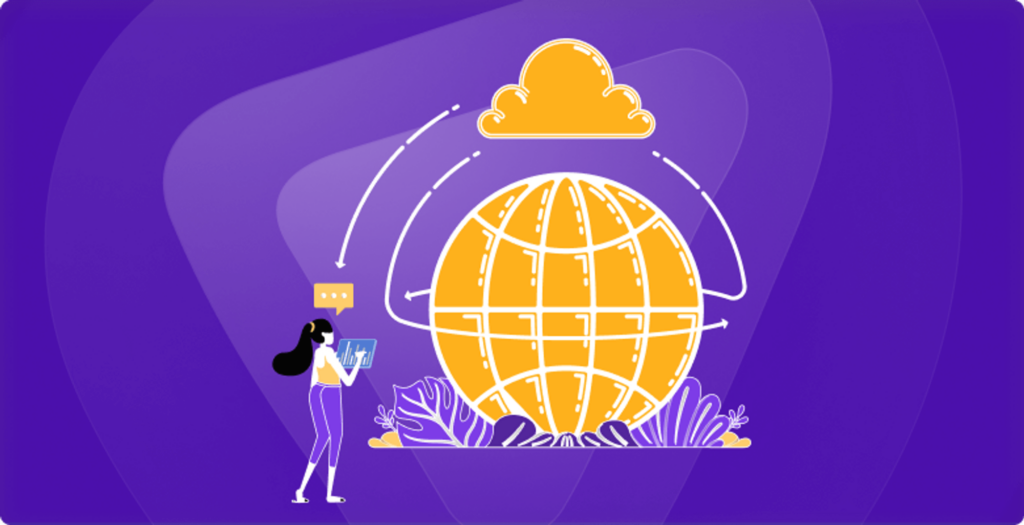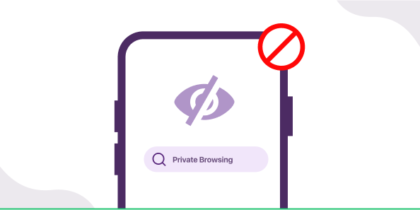Using any service that requires you to remain connected to the internet for access will consume some of your data, regardless of how insignificant or small the service may appear. Contrary to what one might assume, a VPN is not necessarily a data-hogging application, despite its complexity.
If you are wondering, “Does a VPN use more data?” then you have come to the right place. In this blog, we will clarify how much data VPNs consume and offer suggestions for minimizing VPN data consumption.
Does a VPN use data?

Indeed, using a VPN will consume data. However, the amount of data used will depend on the encryption protocol used by your VPN provider. Typically, the additional data used for encryption does not surpass the 5-15% range. This extra data consumption is necessary to account for the encryption process used by the VPN to secure your data during transit.
Can a VPN function on cellular data? Yes, a VPN works on mobile data. However, using a VPN on your phone may increase mobile data usage by 4-20%, depending on the VPN protocol used. Therefore, you cannot use a VPN to circumvent your monthly mobile data limit or obtain unlimited roaming data. So, does a VPN use more data? The answer is yes.
How much data does a VPN use?
The amount of data consumed by a VPN depends on your online activities. As previously mentioned, using a VPN will augment your total data usage by roughly 5-15%, based on online resources. In most cases, the additional data consumption resulting from VPN usage is negligible and should not significantly impact your monthly data usage allocation.
However, if you have a routine of streaming HD movies or TV shows daily while using a VPN, the data consumption will be more apparent. For instance, if someone watches 4K-quality content all week and consumes 30 gigabytes of data, that figure could potentially increase to 34.5 gigabytes if a VPN was active throughout.
Nonetheless, the quantity of data used by a VPN is dependent on the encryption protocol employed by your VPN service.
The data benefits of a VPN
One advantage of using a VPN with data is that it can prevent data throttling. When you connect to the internet using a VPN, your internet service provider (ISP) cannot observe your online activities, and therefore, cannot impose data throttling.
In some cases, ISPs may resort to data throttling to slow down the internet speed of heavy internet users who spend several hours downloading videos or playing online games. This can lead to a frustrating online experience, and the ISP may employ this technique to encourage users to opt for more expensive internet plans that are free from such slowdowns.
However, if you connect to the internet through a VPN, your ISP cannot detect your IP address or identify you as a heavy user. As a result, it is unlikely to impose data throttling on your connection, and your online speed will remain unaffected.
What VPN protocols consume the least data?
VPN protocols that consume less data often use lightweight encryption and reduce overhead. The following are some good examples:
- PPTP is a popular VPN protocol supported by most operating systems. It is known for its low overhead and fast connection speeds. However, PPTP uses weak encryption and is not considered secure for transmitting sensitive data.
- L2TP/IPSec is a combination of two protocols that offers strong encryption and is widely used in enterprise networks. While it may use slightly more data than PPTP, L2TP/IPSec provides better security and privacy protection.
- WireGuard is a modern VPN protocol that uses modern, high-performance cryptography and is designed to be highly efficient and secure. It offers better performance and lower overhead than many other VPN protocols.
How to choose the right VPN protocol
When selecting a VPN service, one of the most important considerations is the encryption protocol used. It is crucial to find a balance between VPN security, speed, and data usage. A VPN may advertise itself as being one of the fastest, but it could rely on weaker encryption. So, though it can transfer your data faster, it is more vulnerable to hackers.
The strength of encryption protocols used by VPN services is usually measured in terms of bit numbers. Typically, the higher the bit number, the stronger the encryption and the more difficult it is for unauthorized parties to access or intercept data.
For instance, 128-bit PPTP is less data-intensive but offers the lowest security level. Experts recommend avoiding it. On the other hand, 256-bit encryption protocols have superior security with only a slight increase in data usage, making it a worthwhile tradeoff. PureVPN offers OpenVPN, IKEv2, and WireGuard, all of which provide 256-bit encryption.
Tips to minimize VPN data usage
Although using a VPN will consume some data, here are some suggestions to reduce VPN data usage:
Activate split tunneling: Certain VPN providers like PureVPNoffer split tunneling as a feature that allows you to decide which apps send data through the VPN server and which ones can access the internet directly. With this feature, you can redirect an app that consumes more data than others outside of the VPN while still keeping the rest of your apps secured.
Avoid metered internet: Metered internet refers to internet connections where you are charged based on your usage. Most broadband connections offer unlimited data usage, while many mobile data packages only allow a certain amount of data usage. Since a VPN encrypts your data, you can safely connect to public Wi-Fi hotspots and other networks that offer unmetered internet.
Occasionally turn off your VPN: It is advisable to keep your VPN turned on at all times. However, if you plan to do something online that consumes a significant amount of data, you may want to switch off your VPN to reduce data usage.
What are other benefits of using a VPN?
Although using a VPN may require a slightly higher amount of data usage, it can provide various benefits. When you engage in data-intensive activities, such as streaming a live sports event, your internet service provider (ISP) may slow down your internet speed.
This practice, known as bandwidth throttling, is implemented by ISPs to maintain their network performance during peak usage periods or when network maintenance is ongoing. However, when you are connected to a VPN, your ISP is unable to monitor your online activities, so it cannot throttle your connection speed based on your internet usage.
When should I use my VPN?
If you value your online privacy, it is recommended to keep your VPN on at all times. However, if you are concerned about the data usage, you might want to think about when to use your VPN.
Connecting to public Wi-Fi is a great example of when you should use a VPN to protect your mobile device. However, if you are just scrolling through Facebook at home, you might not need the protection of a VPN and can save your data usage.
Remember, once you turn off your VPN, you lose the privacy protection it provides. So, be mindful of what you are comfortable with your ISP seeing.
When choosing a VPN provider, make sure you select one that fits your needs. With over 6,500 servers worldwide and top-of-the-line encryption, PureVPN offers the best coverage and security on the market. Plus, it’s available on almost every device and operating system, ensuring protection wherever you go.



